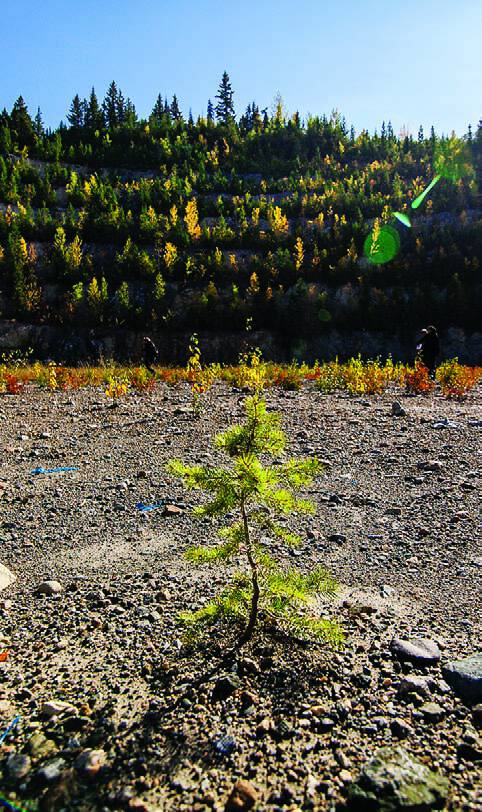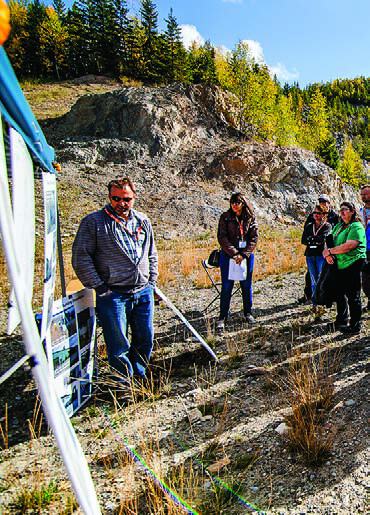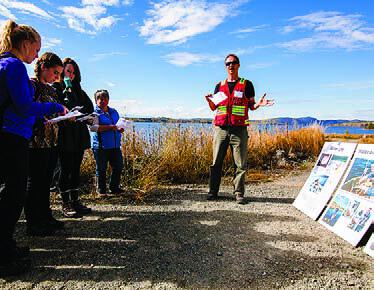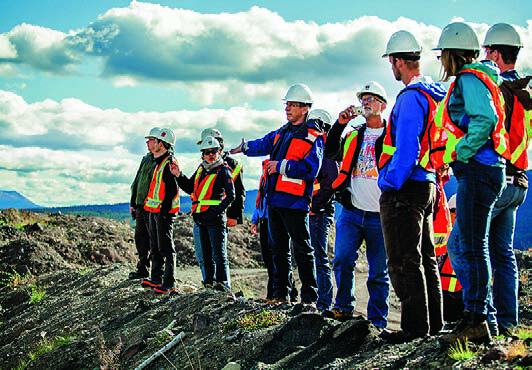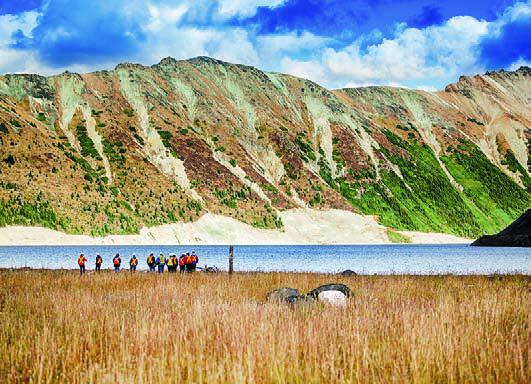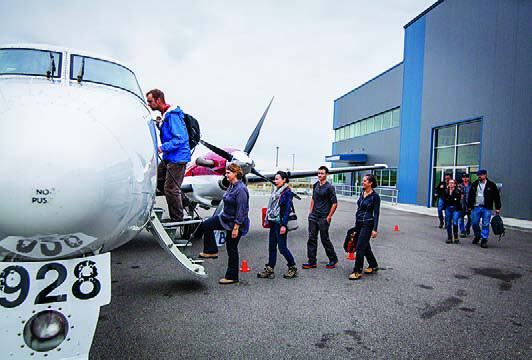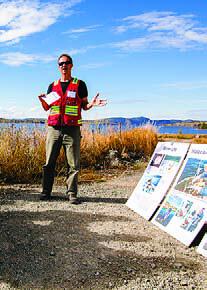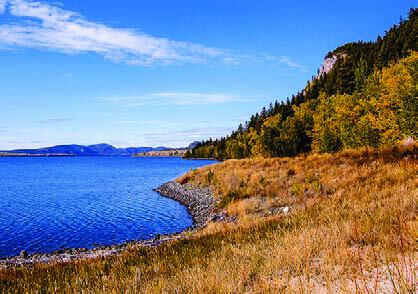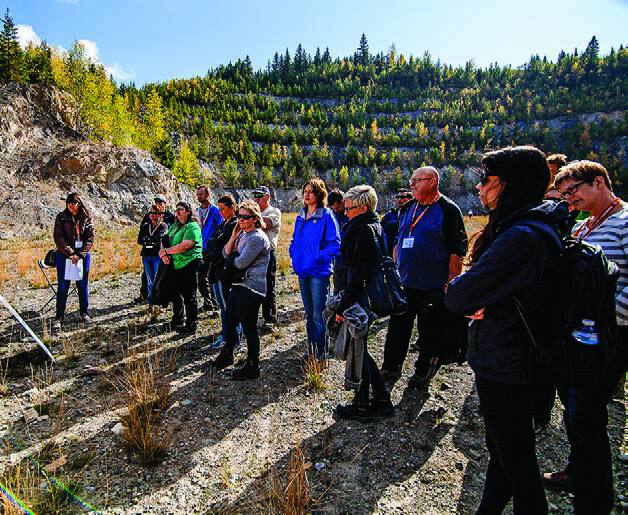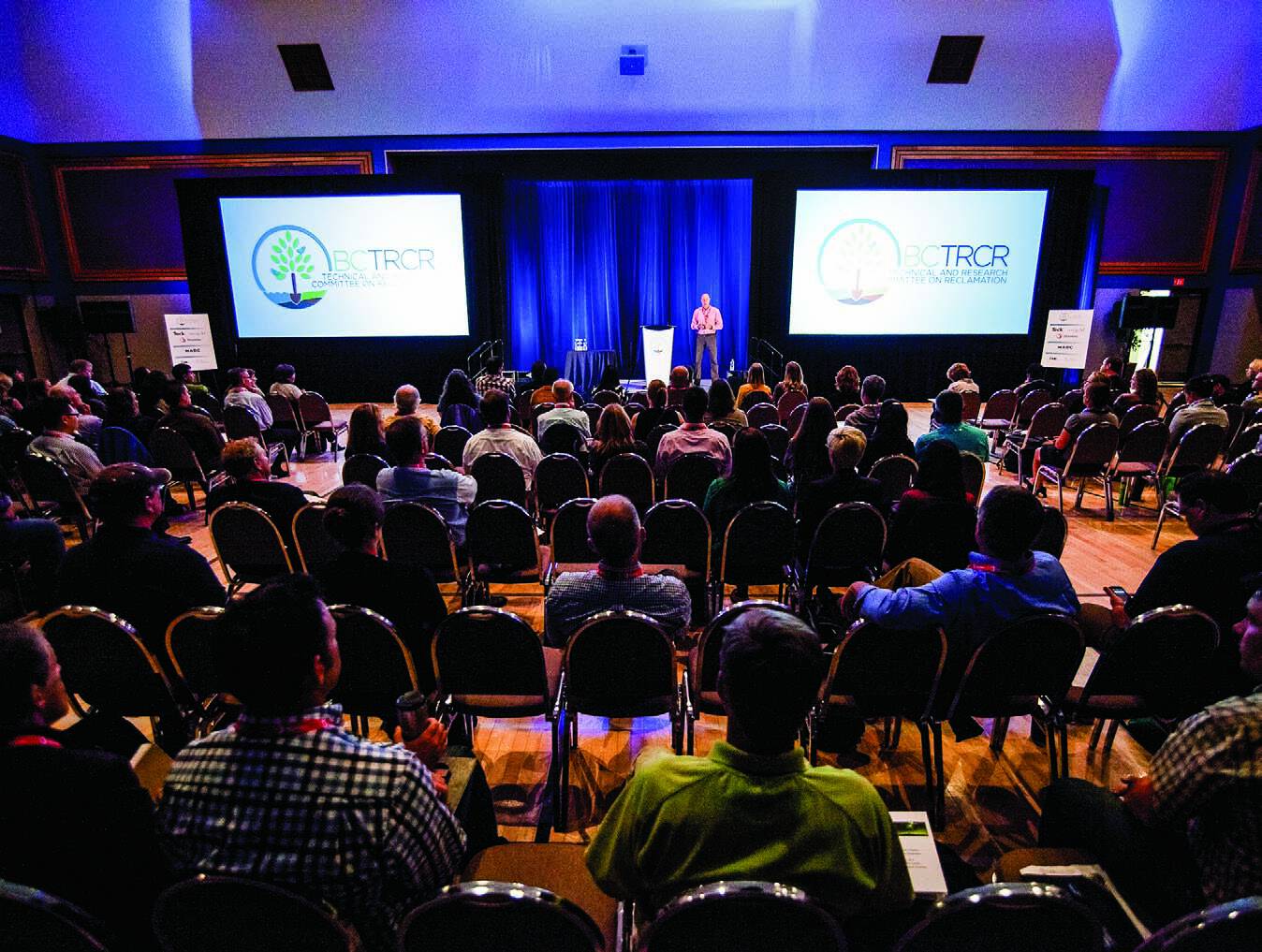
The 38th annual Mine Reclamation Symposium was held at the Prince George Civic Centre in Prince George, B.C., from September 22 to 25, 2014.
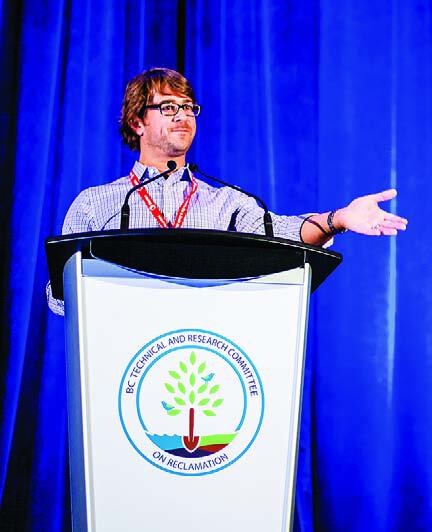
The Mine Reclamation Symposium is presented annually by the BC Technical & Research Committee on Reclamation (BC TRCR). The committee evolved in the early 1970s in response to a demonstrated need in the province for greater government-industry communications in the area of environmental protection and reclamation associated with mining. Membership in the BC TRCR is drawn from: reclamation specialists at operating mines; the B.C. Ministry of Energy and Mines; the B.C. Ministry of Environment; the Mining Association of British Columbia; the Mining Association of Canada; AME BC; and British Columbia universities and colleges such as the University of British Columbia and Thompson Rivers University. The committee meets monthly to discuss matters of joint concern and interest, exchange experiences, plan Symposium activities and prioritize research needs.
The Symposium included a four-day program commencing September 22 with a once-in-a-lifetime opportunity for 18 people to fly into northern B.C. to either see the Kemess Mine reclamation program or take in a full-day workshop on the design of mine-waste cover systems. On September 23, a full-day field trip to the Pinchi Lake Mine was held, along with a visit to the acclaimed Fort St. James National Historic Site and dinner at the Nak’albun Elementary School. Papers were then presented on September 24 and 25 at the Prince George Civic Centre.
Field trips
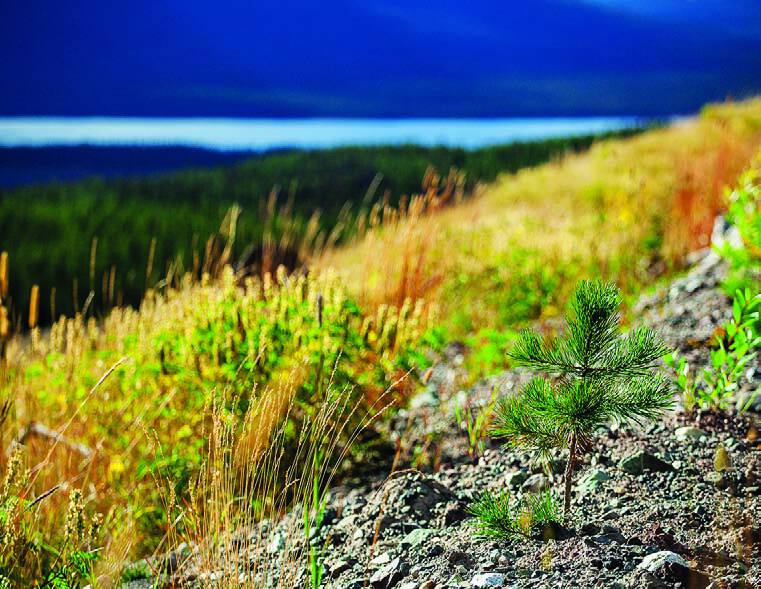
The Kemess Mine was an open-pit copper and gold mine at the head of the Finlay River in the Omineca Mountains of the northern interior of British Columbia. It was operated by Royal Oak Mines from 1998 to 1999, when it was bought by Northgate Minerals. Northgate operated the mine until its closure in 2011, when Northgate was taken over by AuRico Gold. AuRico is implementing a closure reclamation program for the mine, which was the focus of the tour. The end land-use objective is wildlife habitat; a successional reclamation approach will promote ingress of native vegetation (rough and loose), and use the planting of key pioneering species and native plants to the greatest extent possible.
The Pinchi Lake Mine is located on the north shore of Pinchi Lake, approximately 25 kilometres northwest of Fort St. James.
This historic mercury mine owned by Teck Resources Limited recently underwent decommissioning and reclamation from 2010 to 2012. The tour of the site included an overview of the reclaimed areas as well as presentations on the aquatic and terrestrial risk assessments conducted to support closure; the landfilling of the decommissioning materials; the current status of the revegetation; and preliminary results of the river otter and American mink study.
Symposium papers
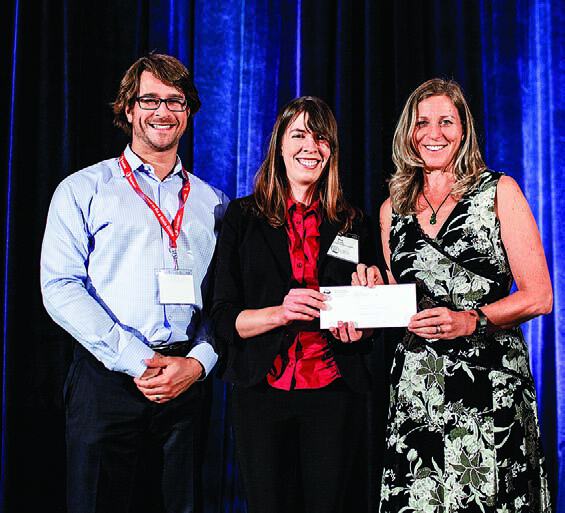
The Symposium attracted 219 delegates, including 17 sponsored First Nation delegates and 18 Grade 11 and 12 students participating in the Northwest Community College School of Exploration and Mining’s dual credit Environmental Monitor Assistant Program.
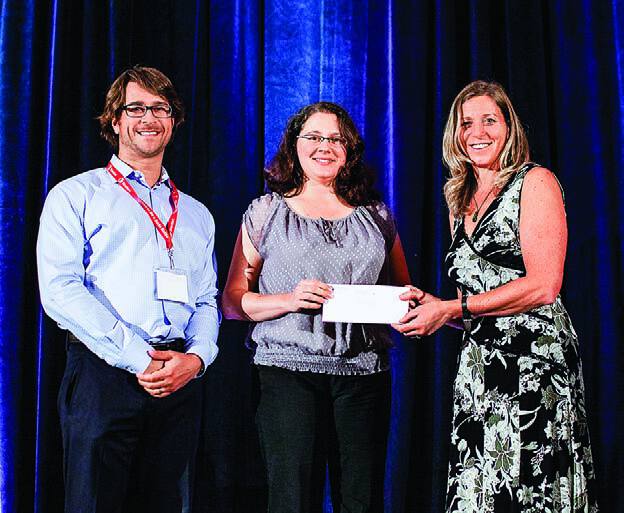
The Symposium technical papers were presented over two days at the Prince George Civic Centre. For a complete list of papers, visit trcr.bc.ca. Papers are also published online through the University of British Columbia at circle.ubc.ca/handle/2429/6934. Awards The BC TRCR celebrated the successes of students and the authors of the previous year’s best technical paper at its 38th annual banquet during the Mine Reclamation Symposium at the Prince George Civic Centre on September 24.
The committee offers a total of $2,000 in scholarships annually to students registered at a university or college in the province of British Columbia. This year, the BC TRCR awarded the Jake McDonald Scholarship for Mine Reclamation to two master of science candidates at the University of Northern British Columbia (UNBC), Rachel Pugh and Sara Sparks.
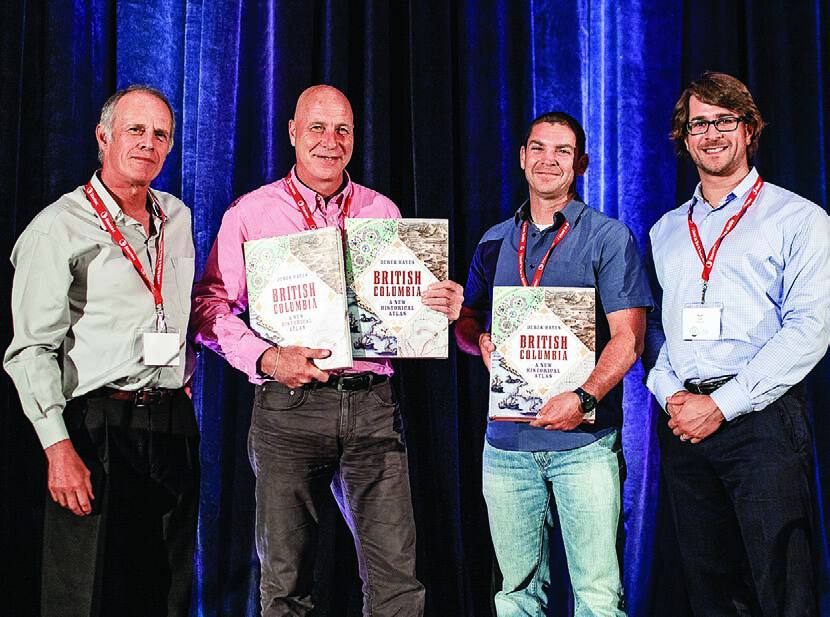
Pugh is conducting research on creating granular structure in non-soils, such as mine tailings, using a co-pyrolysis process with organic matter and mine tailings. She completed an undergraduate degree at UNBC with a B.Sc. in environmental science, and has also worked for both the federal and Yukon governments. Sparks’ research at Highland Valley Copper is focused on using mountain bluebirds and tree swallows as bioindicators of self- sustaining reclaimed ecosystems. Her interest in reclamation was prompted by her work as an environ- mental technician at Huckleberry Mine during her first year of university, leading her to switch her studies from outdoor tourism to environmental science.
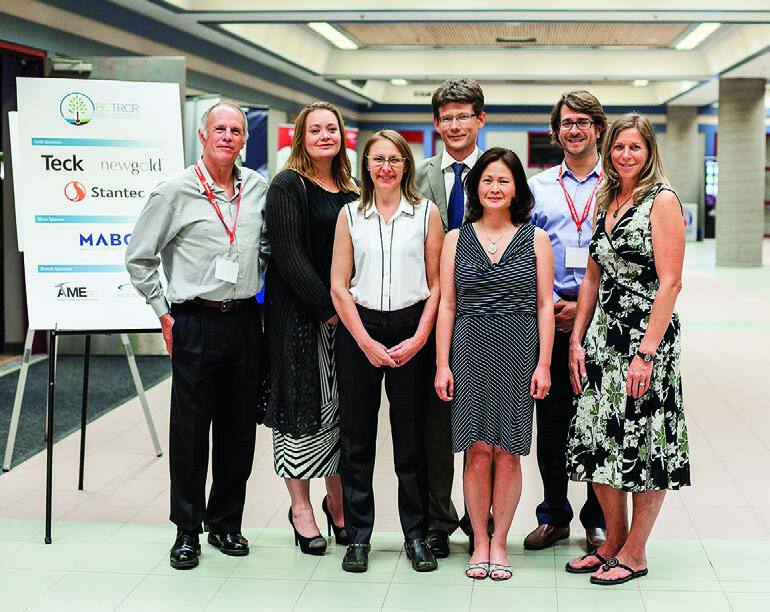
The Tony Milligan Book Award is presented to the author or authors of the best paper presented in the previous year that exemplifies the most practical aspects of reclamation. This year, the award was presented to Patrick Allard, Randy Baker and Cheryl Mackintosh of Azimuth Consulting Group Partnership in recognition of their paper from the 37th annual symposium in Vancouver in 2013, “Use of ecological risk assessment to guide remediation at the Teck Pinchi Lake mercury mine.” Teck Metals Limited had been previously recognized for its work at the Pinchi Lake mine with the Jake McDonald Mine Reclamation Award at the 2013 symposium, and Teck’s director of environmental legacies, Steven Hilts, was presented with a jade keeper trophy for safely returning the Jake McDonald Mine Reclamation Award to the BC TRCR.
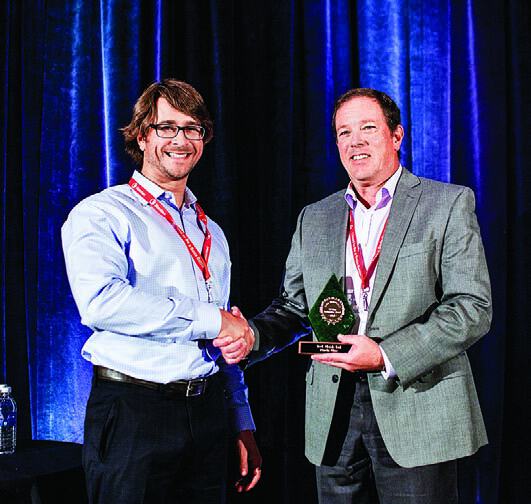
The annual reclamation awards were not presented this year due to a lack of nominations in the various categories. The BC TRCR is aware of good reclamation work being completed across the province – work that shows substantial planning and innovative thinking – that will provide for strong future results. However, after 37 years of strong nominations, only two nominations were received for 2014. The BC TRCR believes this may be a reflection that industry has been busy with ongoing reclamation work that may not yet be at a stage to be showcased. The BC TRCR encourages members of the mineral exploration and mining sector to nominate companies with reclamation programs for the award.
AME BC has held a spot on the BC Technical & Research Committee on Reclamation since 2009, and encourages members to submit their reclamation programs for consideration for the Jake McDonald Mine Reclamation Award. The BC TRCR is a partner in the upcoming Mine Closure 2015 conference to be held June 1 to 3, 2015; see mineclosure2015.com for more information.

